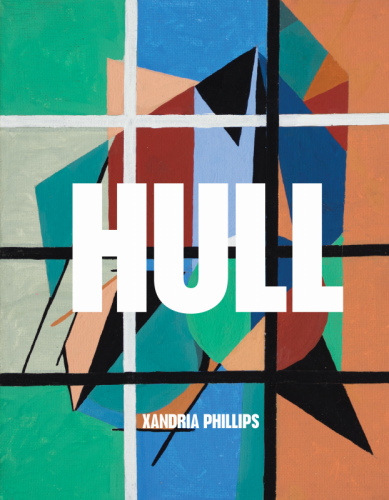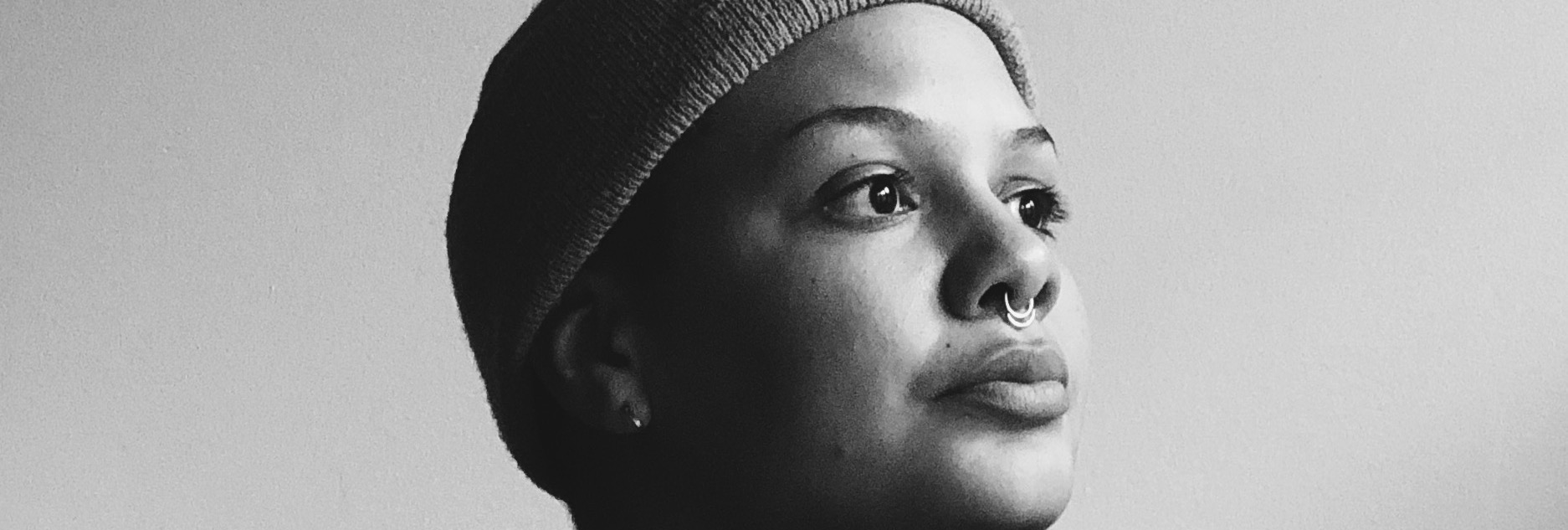5 Questions with Judith A. Markowitz Award Winner Xandria Phillips

Author: Brian Gentes
May 6, 2020
The Judith A. Markowitz Award for Emerging LGBTQ Writers recognizes LGBTQ-identified writers whose work demonstrates their strong potential for promising careers. Two Emerging LGBTQ Writer prizes are awarded annually. 2020 Markowitz Award Winner Xandria Phillips is a poet and visual artist from rural Ohio.
Xandria has received fellowships from Oberlin College, Cave Canem, Callaloo, and the Wisconsin Institute for Creative Writing, where they are the First Wave Poetry Fellow. Their poetry has been featured in American Poetry Review, Black Warrior Review, Crazyhorse, Poets.Org, Virginia Quarterly Review, and elsewhere. Their first book, HULL, was published by Nightboat Books in 2019 and is currently a finalist for the 2020 Lambda Literary Award in Transgender Poetry.
Are there any LGBTQ writers or books that you count as formative influences to you as a writer? How did you discover them?
This is such a difficult question because I feel like I’m still discovering texts and people that feel foundational all the time. If I had to pick a first, I would say, hands down, Audre Lorde. I ate up her biomythography, collected poems, and nonfiction as an undergrad. I particularly remember feeling, as I read Sister Outsider and I am Your Sister, that she was speaking directly to me. It was exhilarating. That must have been the first time I felt seen in a text. I discovered Audre Lorde my junior year. I was assigned Zami: A New Spelling of My Name in a class called Immigrant Narratives. Shoutout to Professor Afia Ofori-Mensa for holding space for this life-changing book in her syllabus.
What does a writing day look like for you?
A making day has to start just right. I’m learning now that moving my body activates my brain, so ideally, I will go for a walk or do a bit of stretching. I’m very no-frills, though for a while I hoped to write like Ntozake Shange, adorned so beautifully. I start by hand usually; I think it comes down to the physicality again. I frequently write to music or television, though these things generally fall away when editing comes. My favorite approach to writing has been to switch between it and painting for the duration of the day. When the paint is drying, I write. When the draft is settling, I paint. The longer I paint, the more sensitive I become to fonts. When I type up and format my writing it will be in either Perpetua or Spectral font. On a more prolific day, I might resort to hunter-gatherer tendencies and subsidize meals with dried fruit, chocolate-covered espresso beans, and spoonfuls of peanut butter.
Are there other LGBTQ poets working today whose work you particularly admire?
There are far too many to name, but I will take this opportunity to celebrate two people who are foundational to me. I’ll name two writers that I knew back in my Audre Lorde discovery days. I so admire Taylor Johnson and Chekwube Danladi, both of whom I met at Oberlin College. I remember witnessing Taylor’s poetry for the first time at an open mic in Afrikan Heritage House. I remember reading Chekwube’s secret poems in a secret house. Syntactically, both of these poets challenge and delight me in everything they write, which is why I can’t wait to celebrate the launch of both of their first poetry collections. Taylor’s book Inheritance is forthcoming from Alice James Books in November. Chekwube’s book Semiotics drops in September from the University of Georgia Press.

What are you reading now? Is there any book that you’ve found cathartic or instructive during the pandemic?
I’ve just gotten into a new author who feels formative to me in a new genre. Reading Calamities by Renee Gladman has probably been the most resolutory practice I’ve had during quarantine. Each essay starts with the phrase: “I began the day…” With kickstarting each day being one of my biggest challenges, this text has been very grounding. Gladman is able to expand so fruitfully on minutiae, and her work asks me to be more curious and attentive to my immediate surroundings. Gladman is also a writer who makes visual art. This line in Calamities very much resonated with me as an artist: “I had grown used to content being the gesture I made.”
What’s next for you?
I’ve been courting the idea of a poetry project book that explores Blackness in television through the ekphrastic mode. The manuscript is tentatively titled Spectacle. I’m also working on a non-fiction hybrid text called Presenting as Blue / Aspiring to Green. The best way to describe it now would be a collection of thought experiments about color theory, gender, syntax, and television. I’m always looking for more ways to tailor teaching into my life. My present work is gratifying and unexpected. I’ve been doing a bit of freelance writing for an artificial intelligence app, and it’s been fun to use language more as script or dialogue. When left to my impulses I am painting, painting, painting.
Click here for more information about the award and Judith A. Markowitz.

